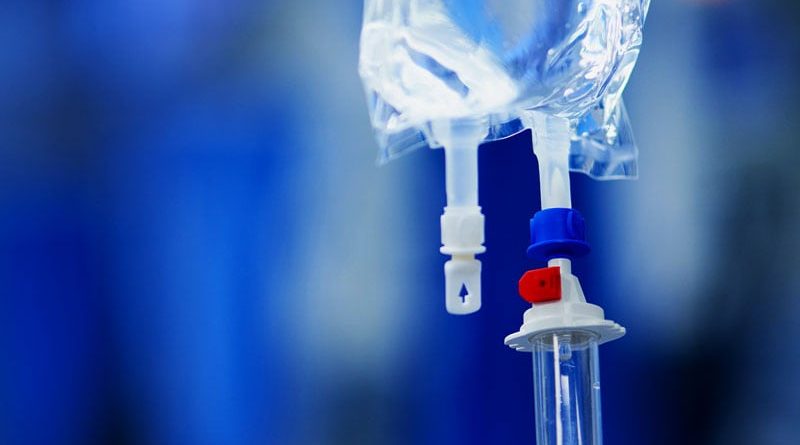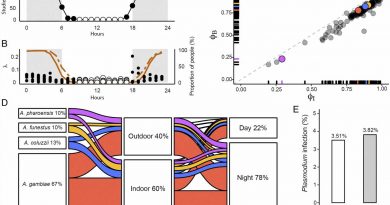Antithrombotics Harmful During Stroke Thrombectomy: MR CLEAN-MED
The periprocedural use of aspirin or unfractionated heparin during endovascular treatment of acute ischemic stroke was associated with an increased risk of symptomatic intracranial hemorrhage without evidence for a beneficial effect on functional outcome, results of the MR CLEAN-MED trial show.
The study was published online in The Lancet on February 28. The results were first presented at last year’s European Stroke Organisation Conference (ESOC) 2021.
“The results of our trial suggest that avoiding routine periprocedural treatment with aspirin or unfractionated heparin might increase chances of recovery after endovascular stroke treatment,” the authors conclude in the Lancet article.
“In addition, the safety and efficacy of using antithrombotic agents during endovascular stroke therapy for other indications (eg, acute carotid stenting) should be further evaluated,” they say.
The MR CLEAN-MED researchers, led by Wouter van der Steen, MD, Erasmus University Medical Center, Rotterdam, the Netherlands, explain that, until now, no randomized trials on treatment with periprocedural antithrombotics in patients undergoing endovascular therapy for acute ischemic stroke have been done. Therefore, guidelines provide no recommendations on the periprocedural administration of antithrombotics and, consequently, large practice variation exists.
The current trial, which had a 2 x 3 factorial design, was conducted in 15 centers in the Netherlands and enrolled patients with ischemic stroke due to an intracranial large-vessel occlusion in the anterior circulation in whom endovascular treatment could be initiated within 6 hours of symptom onset.
They were randomly assigned to receive either periprocedural intravenous aspirin (300 mg bolus) or no aspirin; and to moderate-dose unfractionated heparin (5000 IU bolus followed by 1250 IU/h for 6 hours), low-dose unfractionated heparin (5000 IU bolus followed by 500 IU/h for 6 hours), or no unfractionated heparin.
The study was stopped early for safety concerns after enrollment of 663 patients.
Results showed that the risk of symptomatic intracranial hemorrhage (sICH) was higher in patients allocated to receive aspirin than in those not receiving aspirin (14% vs 7%, adjusted odds ratio [aOR] 1.95; 95% CI, 1.13 – 3.35).
The sICH rate was also higher in patients allocated to receive unfractionated heparin than in those not receiving unfractionated heparin at 13% vs 7%, aOR 1.98 (1.14 – 3.46).
There was also a nonsignificant increase in death for both aspirin (aOR 1.11; 95% CI, 0.73 – 1.69) and unfractionated heparin (aOR, 1.26; 95% CI, 0.82 – 1.92).
Patients allocated to low-dose unfractionated heparin showed a nonsignificant increase in the rates of sICH (aOR, 1.76; 95% CI, 0.98 – 3.18) and death (aOR, 1.05; 95% CI, 0.68 – 1.65).
Patients allocated to moderate-dose unfractionated heparin had a significantly increased risk of symptomatic intracranial hemorrhage (aOR, 6.04; 95% CI, 1.31 – 27.7) and death (adjusted OR, 5.85; 95% CI, 1.70 – 20.2).
Use of both aspirin and unfractionated heparin led to a nonsignificant shift toward worse modified Rankin Scale scores at 90 days (adjusted common OR 0.91 for aspirin and 0.81 for unfractionated heparin).
The researchers report that they did find higher recanalization rates in the unfractionated heparin group. However, this benefit did not outweigh the increased risk of symptomatic intracranial hemorrhage.
Subgroup analyses also suggested that patients with shorter treatment delays might have less harm from heparin. The point estimate of the treatment effect of unfractionated heparin on functional outcome was beneficial in patients with an onset to recanalization time of less than 195 minutes (3 hours, 15 minutes) and harmful in patients with longer onset to recanalization times (P = .0002).
“So, similar to other acute stroke therapies, the effects of heparin might be time dependent,” the researchers note. But they point out that subgroup effects in a trial with a neutral overall treatment effect on the primary outcome should be interpreted with caution because of the risk of false-positive findings.
In an accompanying editorial, Mohammed Almekhlafi, MD, and Shelagh Coutts, MD, University of Calgary, Canada, say the MR CLEAN-MED investigators “are commended for doing this complex trial,” but they suggest that issues other than just the use of aspirin or heparin might have also affected the results.
Noting that 79% of patients transferred from a primary hospital for thrombectomy, they say that delays of transfer can affect the outcome even when the onset to puncture time is relatively short.
They further note that the study did not exclude patients who were previously on antiplatelet or anticoagulation therapy, who would have had a higher hemorrhagic risk with intravenous thrombolysis.
In addition, 50 patients (8% of those enrolled) underwent acute carotid intervention during thrombectomy, requiring the use of non-trial antiplatelet or anticoagulation in some patients, and sICH occurred in 10 of these 50 patients.
Almekhlafi and Coutts say the effects of these results on current practice and future research are hard to predict. They point out that current guidelines already discourage heparin use in combination with intravenous thrombolytics and recommend postponing starting antiplatelets until after thrombolytic therapy.
Considering the high risk for death in the moderate-dose heparin group of this trial, and among those receiving intravenous thrombolysis plus aspirin and moderate-dose heparin, it is prudent to avoid the administration of heparin in patients receiving thrombolysis irrespective of endovascular therapy, the editorialists state.
They suggest there is no role for anticoagulation or antiplatelet therapy for acute stroke patients receiving thrombolytic therapy before thrombectomy. But they say the situation is not so clear for thrombectomy patients who are not candidates for intravenous thrombolysis, and further trials are underway to look at this.
This study was funded by the Collaboration for New Treatments of Acute Stroke (CONTRAST) consortium, with support from the Netherlands Cardiovascular Research Initiative, an initiative of the Dutch Heart Foundation; the Brain Foundation Netherlands; and the Ministry of Economic Affairs. Additional funding was provided by Stryker, Medtronic, and Cerenovus.
Lancet. Published online February 28. Abstract, Editorial
For more from theheart.org | Medscape Cardiology, join us on Twitter and Facebook
Source: Read Full Article



